Paul D. Escott Quotes & Sayings
Enjoy the top 6 famous quotes, sayings and quotations by Paul D. Escott.
Famous Quotes By Paul D. Escott
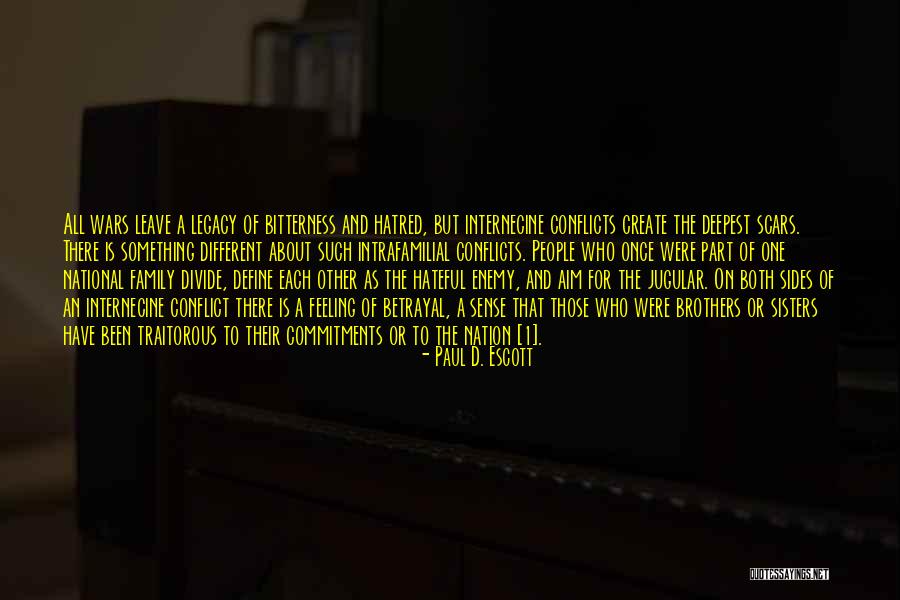
All wars leave a legacy of bitterness and hatred, but internecine conflicts create the deepest scars. There is something different about such intrafamilial conflicts. People who once were part of one national family divide, define each other as the hateful enemy, and aim for the jugular. On both sides of an internecine conflict there is a feeling of betrayal, a sense that those who were brothers or sisters have been traitorous to their commitments or to the nation [1]. — Paul D. Escott
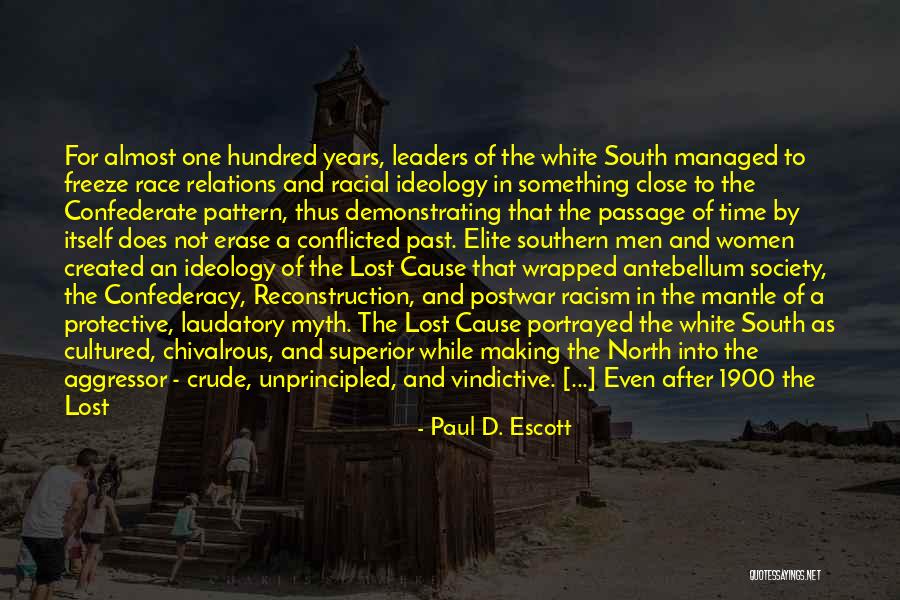
For almost one hundred years, leaders of the white South managed to freeze race relations and racial ideology in something close to the Confederate pattern, thus demonstrating that the passage of time by itself does not erase a conflicted past. Elite southern men and women created an ideology of the Lost Cause that wrapped antebellum society, the Confederacy, Reconstruction, and postwar racism in the mantle of a protective, laudatory myth. The Lost Cause portrayed the white South as cultured, chivalrous, and superior while making the North into the aggressor - crude, unprincipled, and vindictive.
[...] Even after 1900 the Lost Cause ideology continued to gain strength under the leadership of a new generation, until most southern whites came to believe that their history and the myth were identical [75 - 76]. — Paul D. Escott
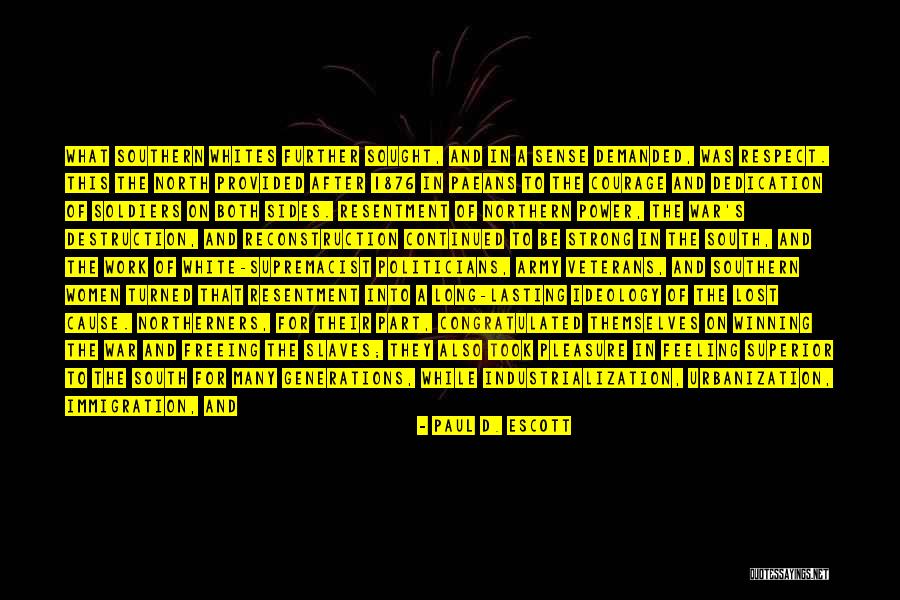
What southern whites further sought, and in a sense demanded, was respect. This the North provided after 1876 in paeans to the courage and dedication of soldiers on both sides. Resentment of northern power, the war's destruction, and Reconstruction continued to be strong in the South, and the work of white-supremacist politicians, army veterans, and southern women turned that resentment into a long-lasting ideology of the Lost Cause. Northerners, for their part, congratulated themselves on winning the war and freeing the slaves; they also took pleasure in feeling superior to the South for many generations, while industrialization, urbanization, immigration, and other social changes diverted much of their attention from wartime issues [184]. — Paul D. Escott
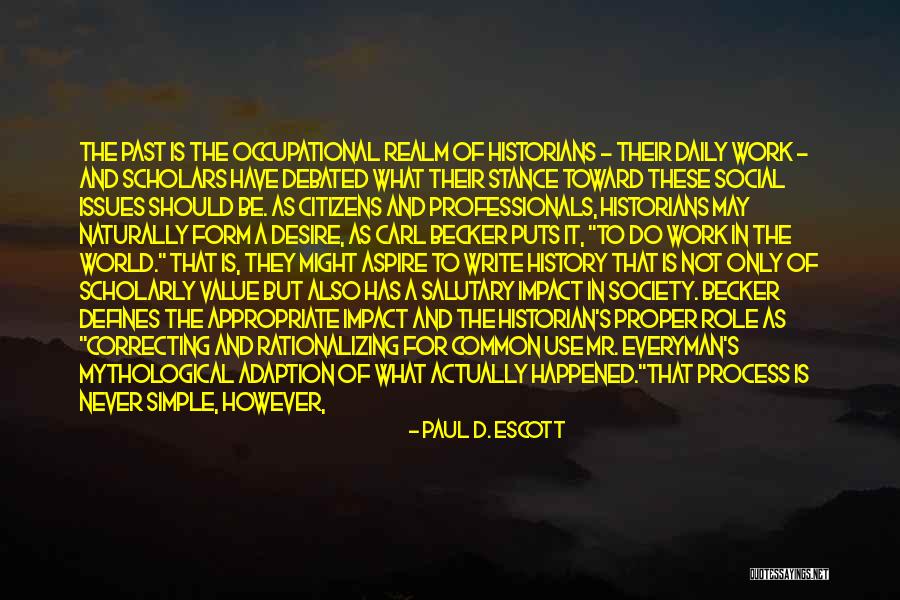
The past is the occupational realm of historians - their daily work - and scholars have debated what their stance toward these social issues should be. As citizens and professionals, historians may naturally form a desire, as Carl Becker puts it, "to do work in the world." That is, they might aspire to write history that is not only of scholarly value but also has a salutary impact in society. Becker defines the appropriate impact and the historian's proper role as "correcting and rationalizing for common use Mr. Everyman's mythological adaption of what actually happened."
That process is never simple, however, when the subject involves divisions so deep that they led to civil wars. One issue that inevitably leads to controversy is the extent to which history involves moral judgment. Another is the power of myths, exerting their influence on society and acting in opposition to the findings of historical research [190 - 91]. — Paul D. Escott
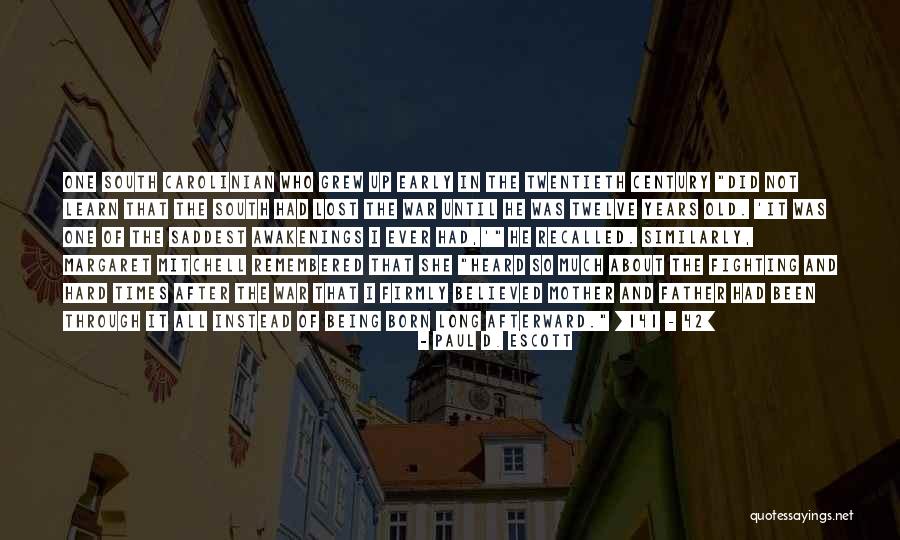
One South Carolinian who grew up early in the twentieth century "did not learn that the South had lost the war until he was twelve years old. 'It was one of the saddest awakenings I ever had,'" he recalled. Similarly, Margaret Mitchell remembered that she "heard so much about the fighting and hard times after the war that I firmly believed Mother and Father had been through it all instead of being born long afterward." [141 - 42] — Paul D. Escott
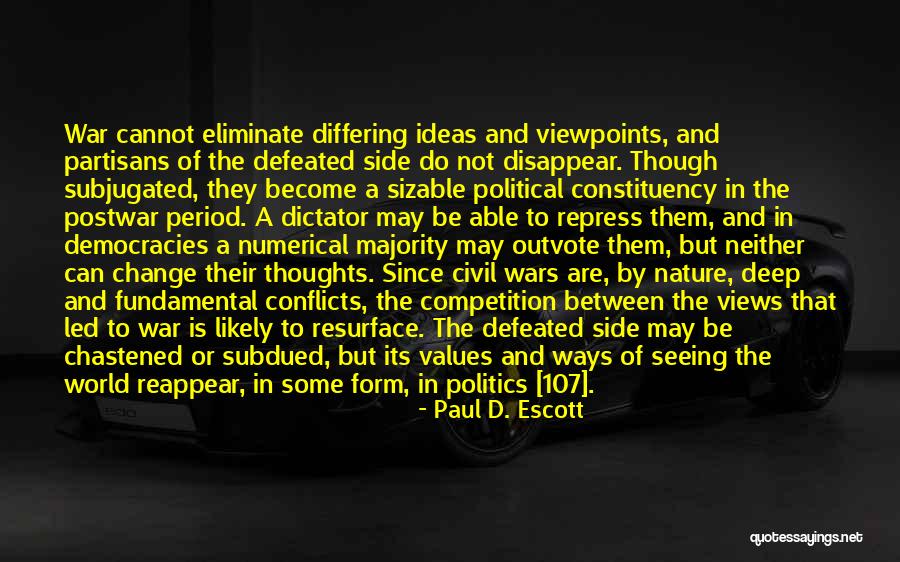
War cannot eliminate differing ideas and viewpoints, and partisans of the defeated side do not disappear. Though subjugated, they become a sizable political constituency in the postwar period. A dictator may be able to repress them, and in democracies a numerical majority may outvote them, but neither can change their thoughts. Since civil wars are, by nature, deep and fundamental conflicts, the competition between the views that led to war is likely to resurface. The defeated side may be chastened or subdued, but its values and ways of seeing the world reappear, in some form, in politics [107]. — Paul D. Escott





